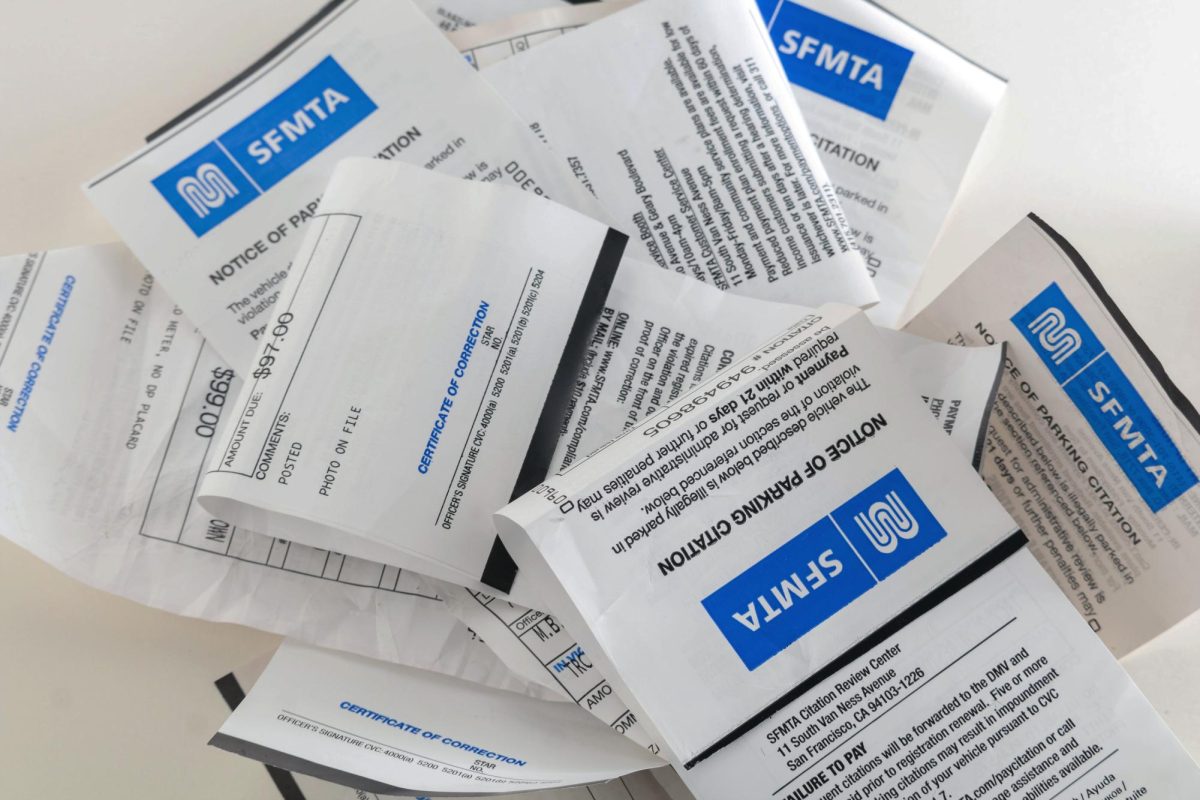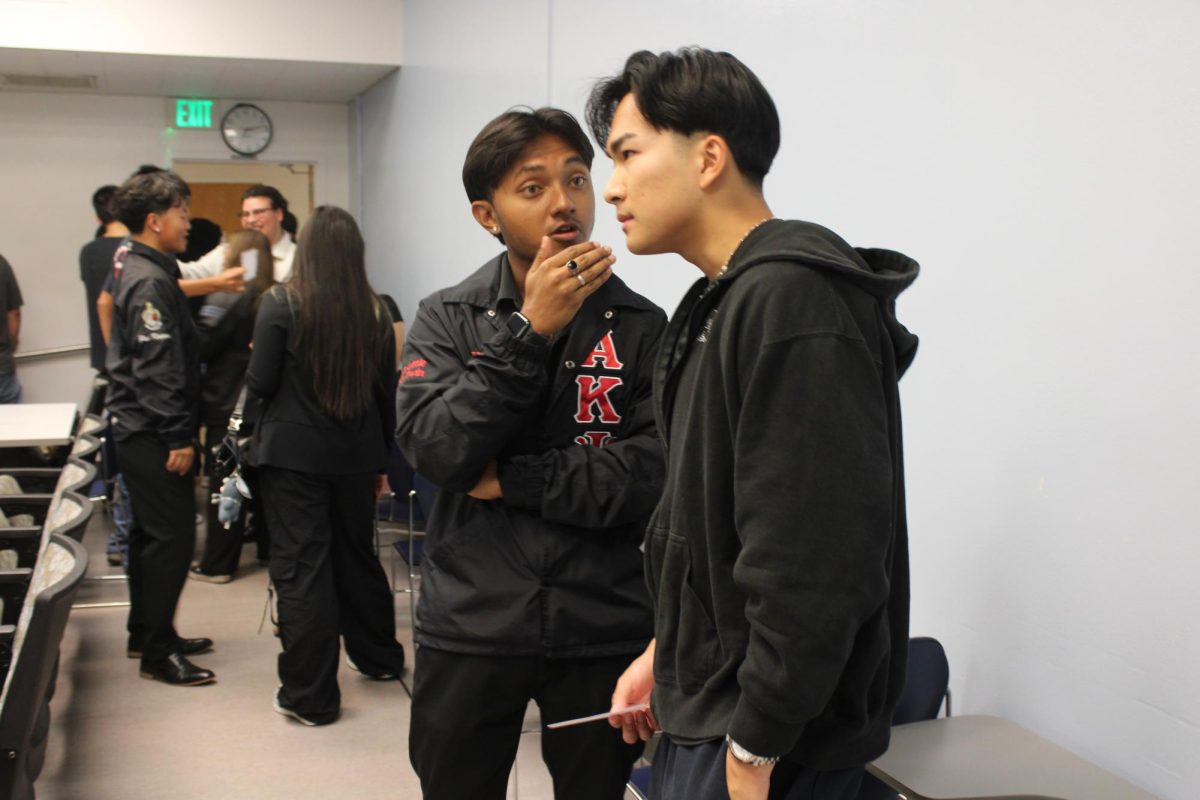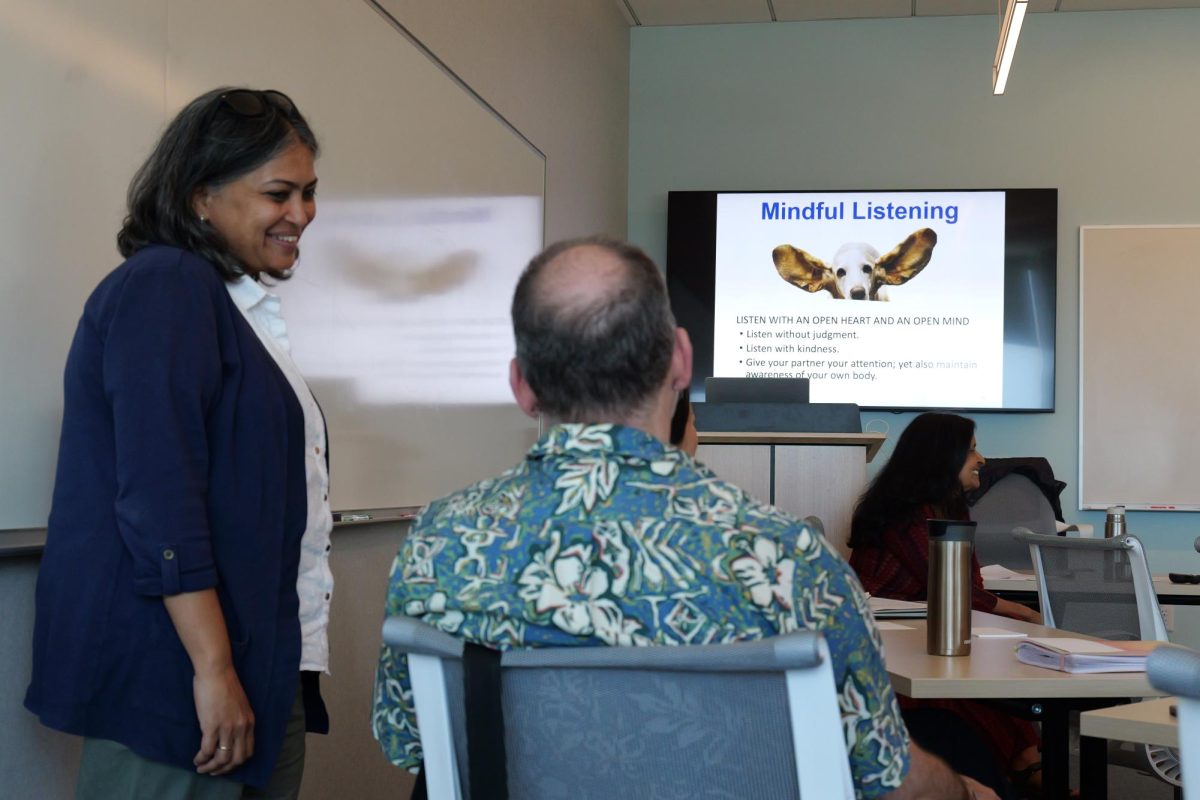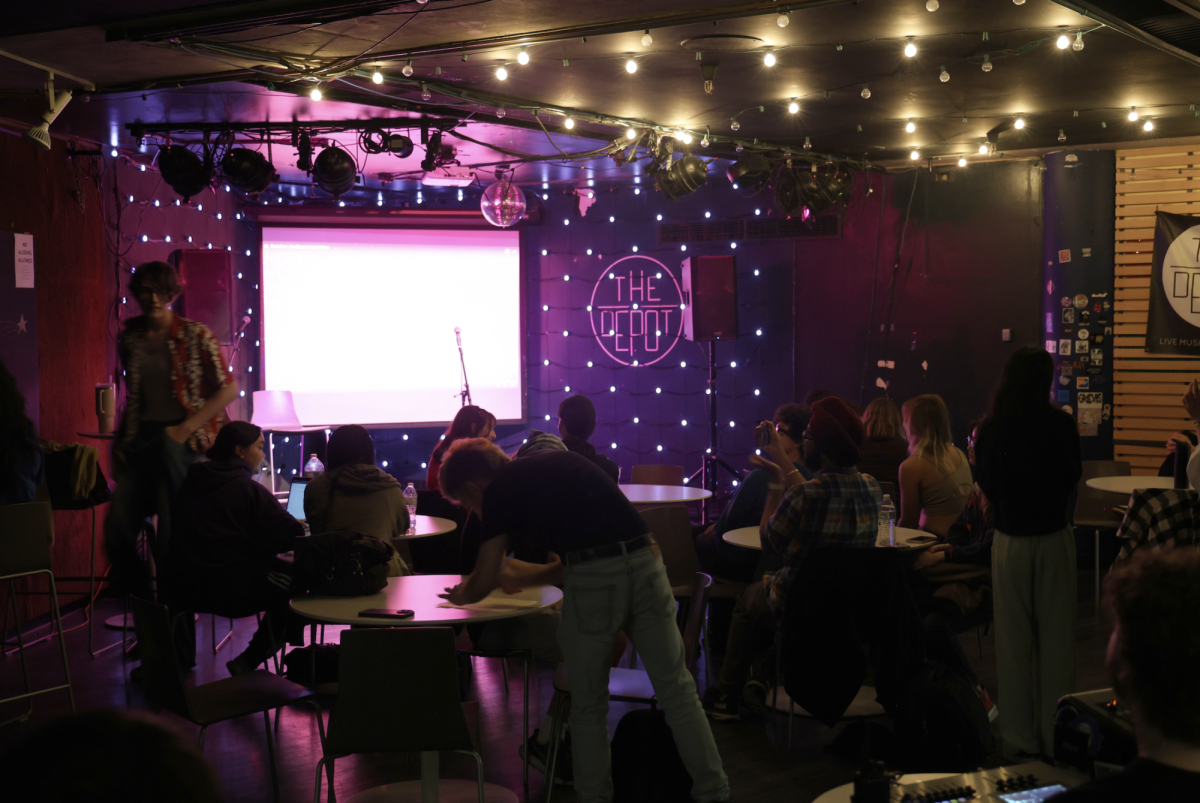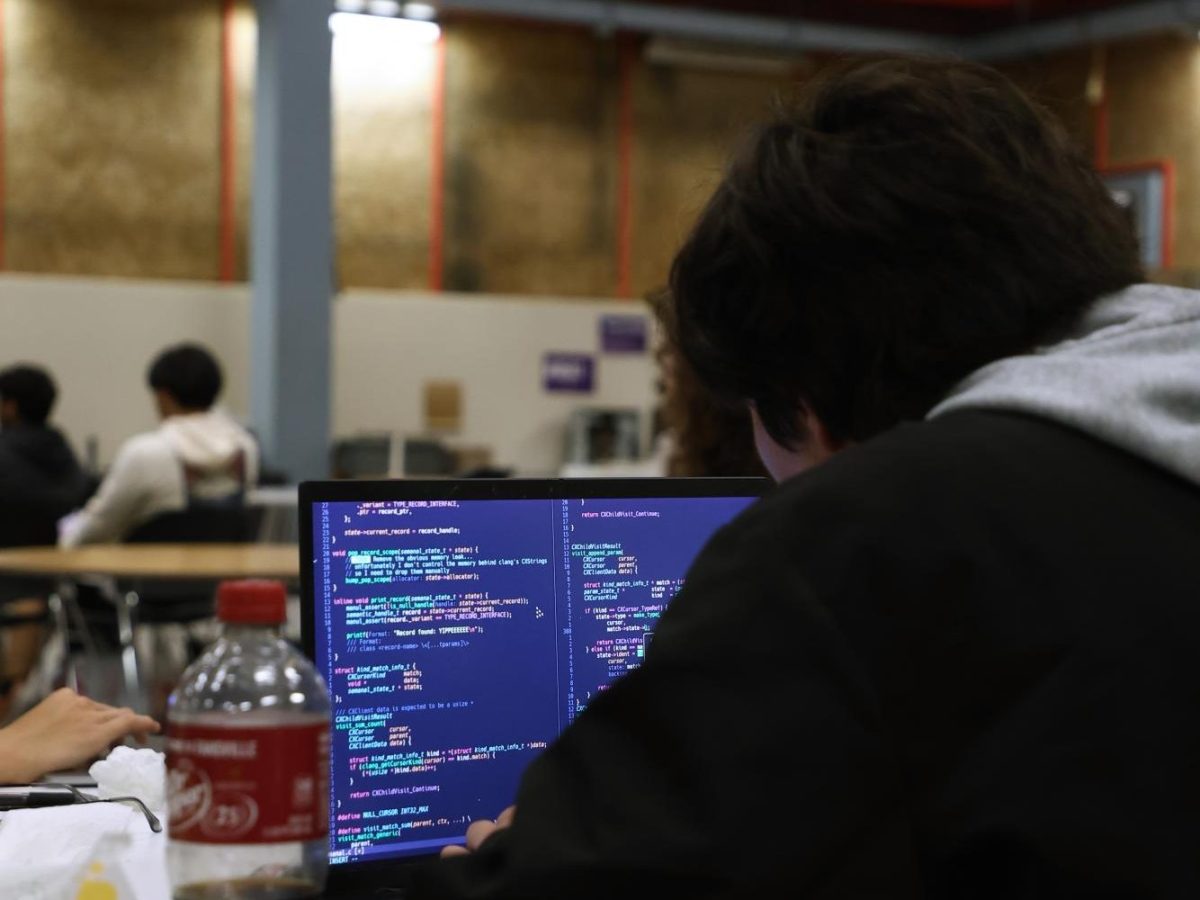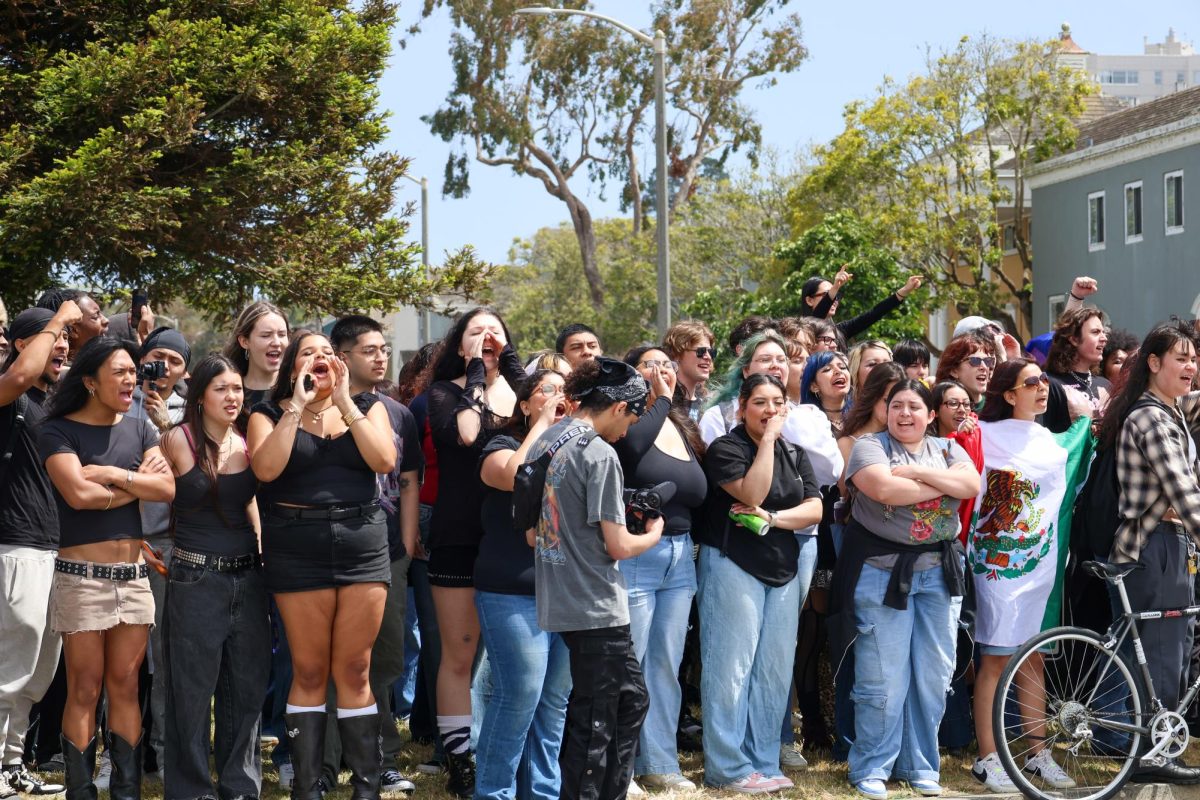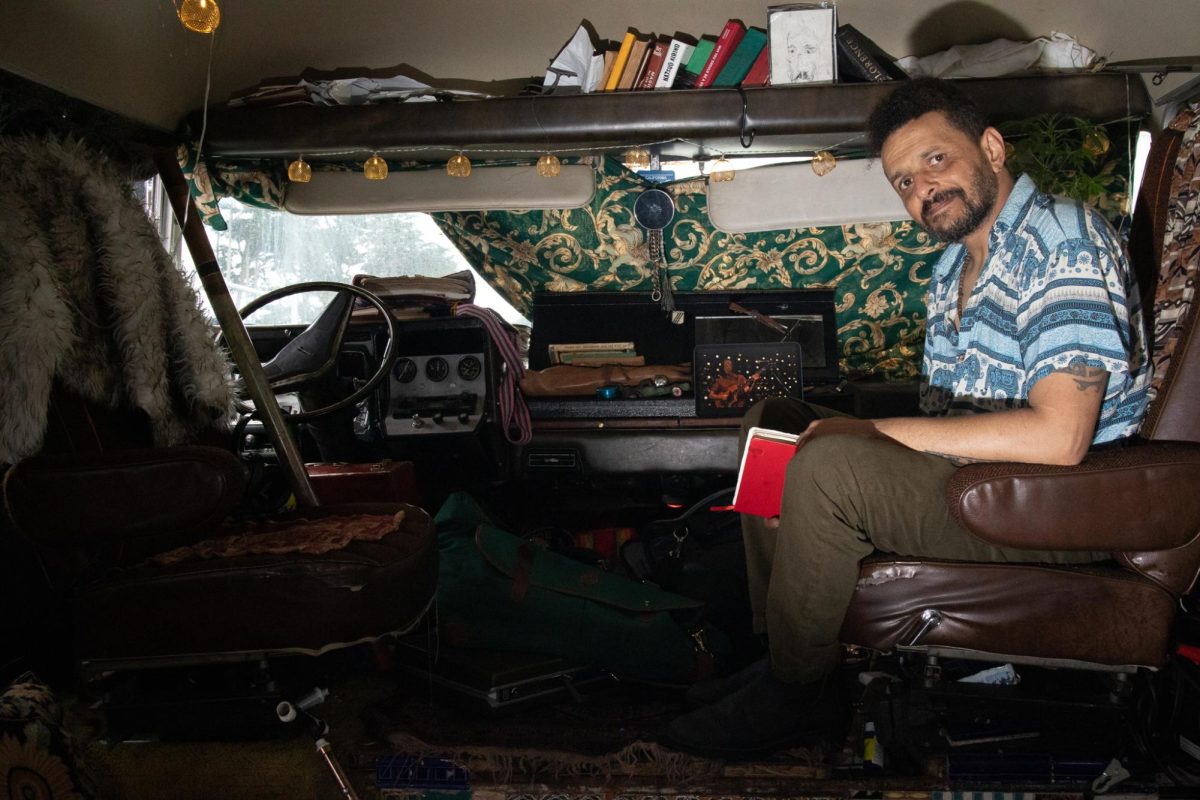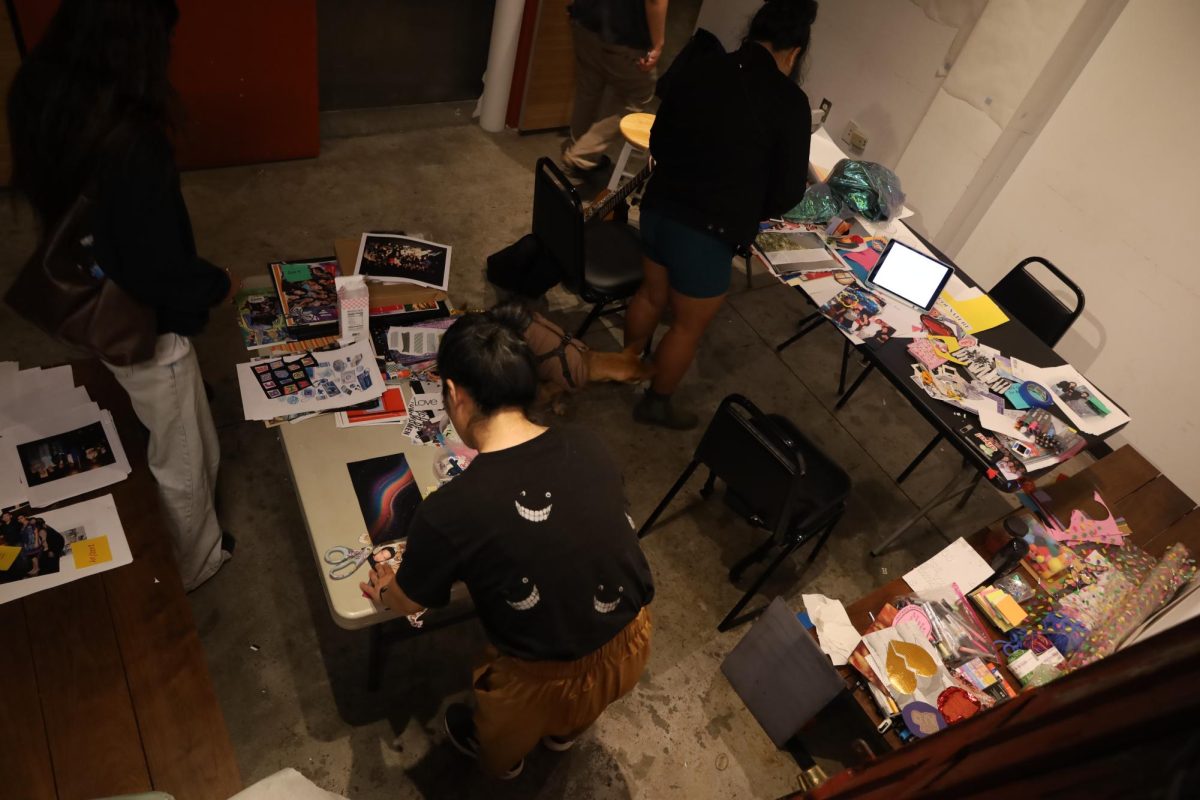When I applied to SF State, I thought of walks around Golden Gate Park, Giants games and all the opportunities that come with city life as a college student.
What I didn’t think of? How easy it is to acquire thousands of dollars of debt in parking fines within a span of a year.
SF State is unlike other California State Universities in the fact that it is a commuter campus. A housing survey conducted by SF State in 2023 for students living on campus revealed only 18% of SF State’s student body lives on campus. Also, compared to other CSU schools like Cal Poly, it is not required to live on campus.
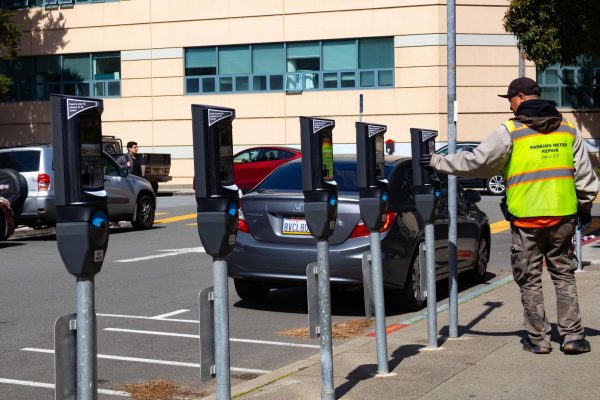
(Jesus Arriaga / Xpress Magazine) (Jesus Arriaga)
With SF State being a commuter campus, very few measures are taken by SF State or the San Francisco Municipal Transportation Agency to support students who commute to campus, especially for those who drive a car to campus.
SF State made a total revenue of $167,530.25 in the 2024-2025 fiscal year. That’s 2,036 parking violations given out, not including the 1,391 parking violations that remain unpaid and open (an additional $105,992.00), according to public records provided by SF State.
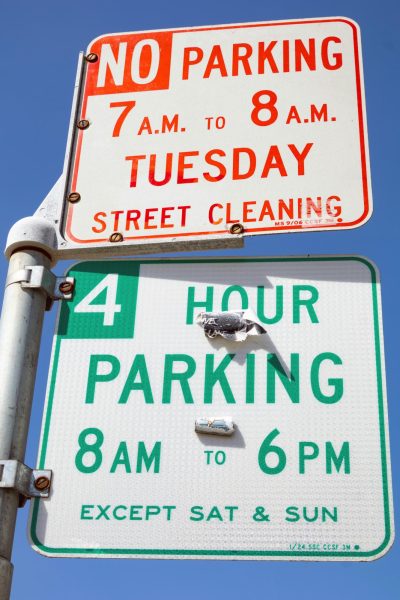
(Jesus Arriaga / Xpress Magazine) (Jesus Arriaga)
According to their official website, SFMTA collected approximately $90 million in revenue in 2024 and annually gives out 1.5 million parking and transit citations each year.
Trinity Ramirez is a third-year psychology student who commutes three times a week from Hayward. When Ramirez heard those revenue numbers, she was disappointed but surprised, as she deals with the stress of either bussing or parking to campus four days a week.
Ramirez tries her best to commute through BART, going from Hayward BART to the Daly City BART station and taking the MUNI 28 bus to campus. But sometimes, Ramirez ends up driving in the event that she wakes up late or has unforeseen transportation delays.
“It’s like, it’s not even good parking, and obviously this is a shared area with residents that live here. It’s not even all students,” Ramirez said.
While driving is not the only option for commuters, it does usually cut the length of time it takes to get to campus, especially for those with early classes. However, that shorter commute time also comes with students taking into account how long it can take to look for parking once arriving on campus.
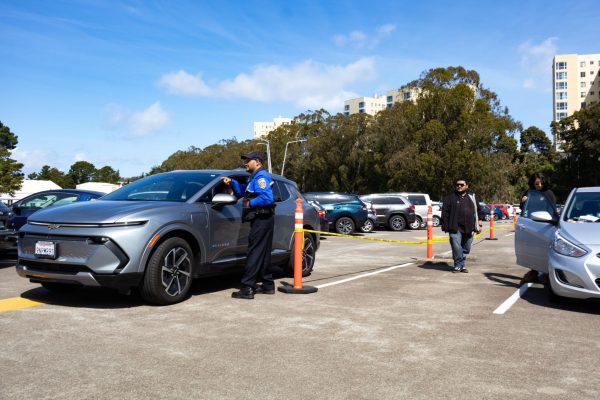
(Jesus Arriaga / Xpress Magazine) (Jesus Arriaga)
Students have a few options for parking on campus, including metered parking spots, two-hour parking areas, farther four-hour parking areas and the campus parking lots managed and patrolled by SF State instead of SFMTA.
The SF State lots offer various options for parking, including hourly parking rates, full-day parking rates (that end at midnight) and a permit that allows 24/7 parking. The semester parking permit costs $500 and must be renewed each semester; it allows parking Monday-Friday. The on-campus student parking permit is $400, and parking on the weekends is included. It is worth mentioning that this $400/semester permit does not come with a guaranteed parking spot. There is also no cap on the number of parking permits sold to students, so it is a possibility that a student with a parking permit could potentially not find a spot in the lot if the lot were to fill completely.
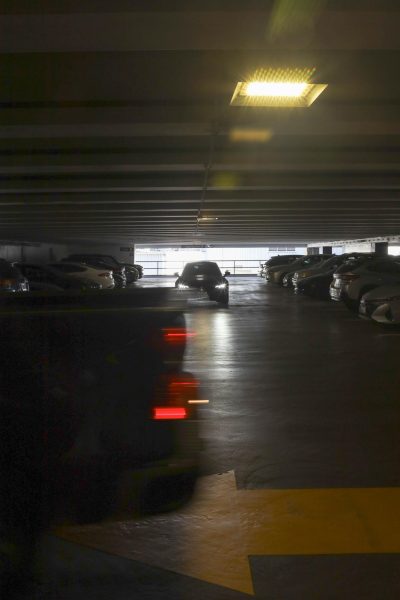
While the permit might be the best option to ensure no violations occur on campus for both commuters and those who live on campus, many students believe the cost is far too high to pay every semester and that the risk of parking on SFMTA patrolled streets without a permit may outweigh the cost.
Marco Robles is a fourth-year SF State student set to graduate this spring and lives on campus in University Park South, housing offered to both residents of San Francisco and students. Robles has lived on campus for two years and, after paying approximately $800 for a permit last year, decided to save the money and park on the public, city-owned streets this semester.
Robles tried applying for a residential parking permit through SFMTA, but when asked for proof of residency and enrollment, no documents provided by SF State included proof of residency and enrollment on the same document, so he continued to get denied.
Robles and Ramirez both suggested that parking meters should be removed on SF State’s campus. That is understood to be extremely unlikely. Additional suggestions included reduced cost for student violations or longer time limits, considering some classes can last more than three hours.
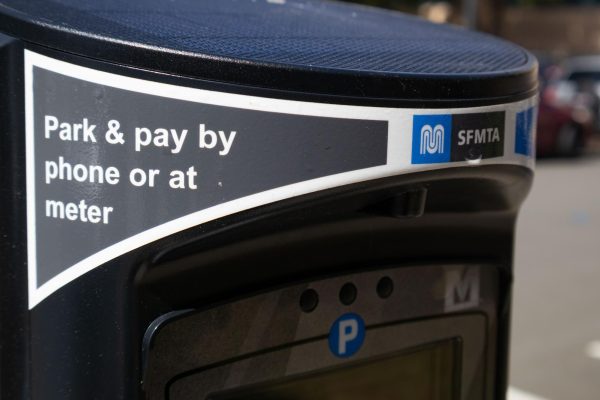
(Jesus Arriaga / Xpress Magazine)
Outside of parking, MUNI’s $50 million shortfall affects commuters in the city and on campus. As a result of the deficit, MUNI plans to cut and reduce bus line services starting in summer of 2025. A part of that plan includes suspending the 28 MUNI line but increasing the 28R service (Rapid), two bus lines that students heavily rely on to travel to campus.
While Robles is an advocate for public transport, he mentions most of his peers are commuters, and that should come with more support from SF State.
“I feel like the public transport is not good enough to not have a car. And like, if you decide to take public transport, it’s gonna take you an hour and a half to get anywhere,” Robles said. “They’re ticketing people that have cars. Okay, how are you supposed to get around? And then when the tickets come, they’re like, 100 bucks. I feel like, especially here, like students, you can’t afford even one ticket.”
A parking ticket can range between $92 to $101 for an unpaid or expired meter, depending on the area of San Francisco where a car is parked. If the ticket remains unpaid for two weeks, the violation fee doubles.

Many students have a point. In what economy can a college student balancing being a full-time student and part-time employee afford a $92 parking ticket … or even a $184 ticket if not paid on time?
Andrew Foley is a sophomore who drives from San Jose and does not have a permit. Foley commutes to campus three times a week and pays the $10 fee to park in Lot 20 all day. He will have paid a total of $450 in fees by the end of one semester.
“It definitely adds up, and I remember last year I was coming four times a week, and that was even more because it would turn out to be like $44 at the end of the week, and then in a month, that’s, like, over $100,” Foley said. “So, it becomes an expense, like a bill almost, not just for the car, but the parking itself.”
Within my own first two years after moving to SF and living in Manzanita Square on SF State’s campus, I accumulated a total of $4,495 in parking violations. That is 19 parking violations total. I felt like I was in financial purgatory. I could not get a permit because the car was in my father’s name, and transferring the title at the time was not an option.
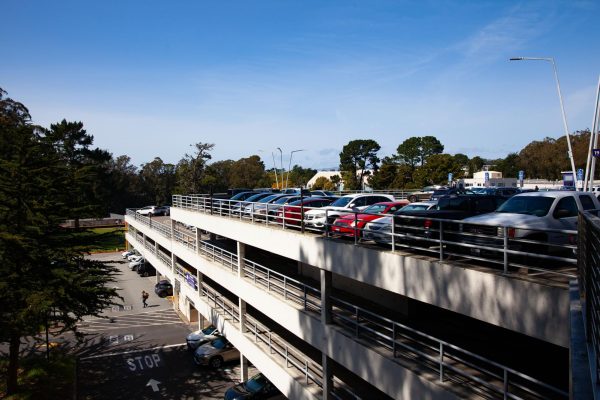
(Jesus Arriaga / Xpress Magazine) (Jesus Arriaga)
I made a financial plan to dedicate a portion of each paycheck of mine to the parking tickets debt. Every time I paid one, the next one doubled. This process went on until eventually I gave up and just stopped trying to pay them in a timely fashion.
You know the Greek tale of Sisyphus pushing the boulder up the hill just for it to fall down? Yeah, that was me every time I got a parking ticket and a paycheck. To this day, I still have nightmares of my car getting booted or towed.
With prices like these, it is hard not to call this parking system predatory. Most college students do not have the income level to pay for these fines. From first hand experience, there is little to no support offered by SF State.



